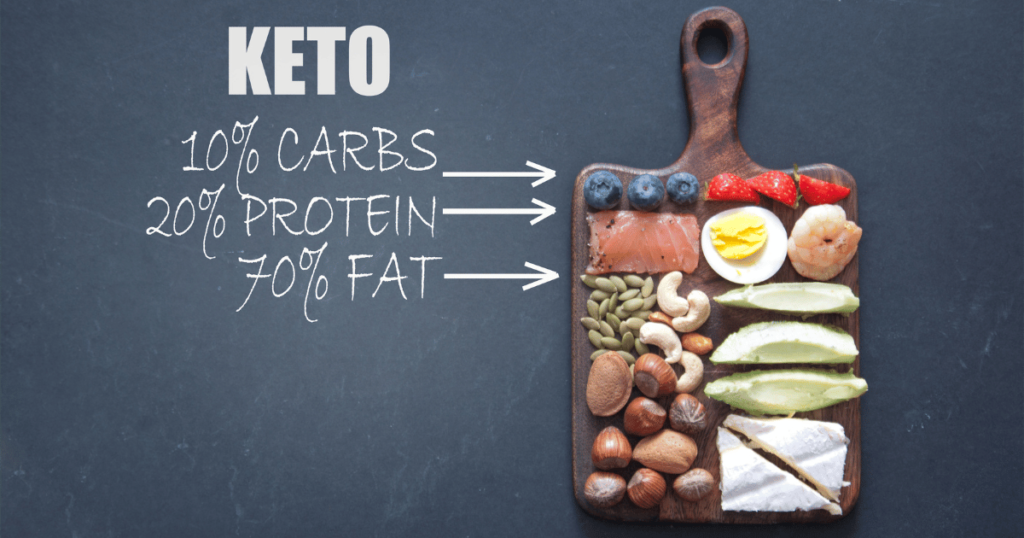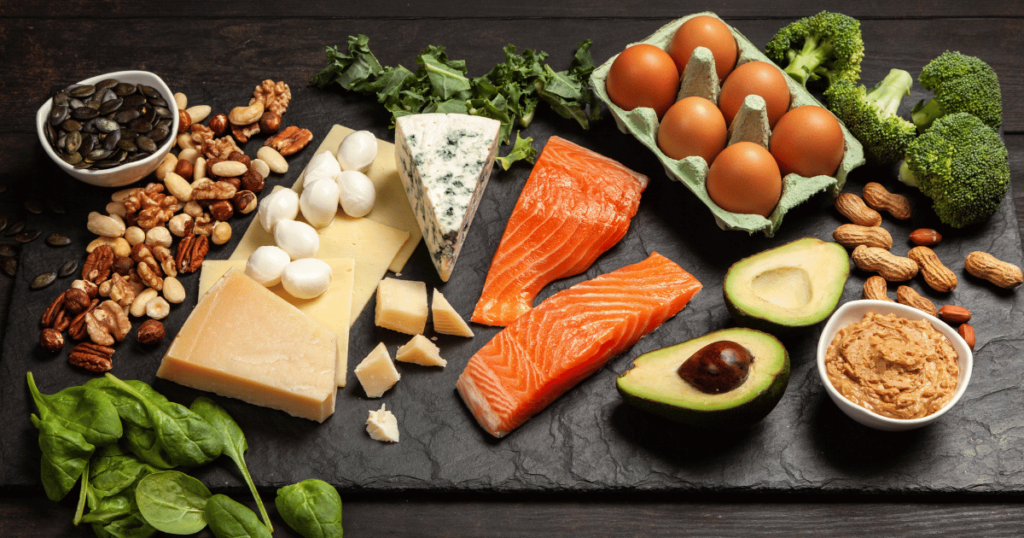As we seek to lead healthier lives, we often try various dietary plans to pursue a more robust and healthier lifestyle. But how do we know which one is right for our body?
Over the last decade, the ketogenic diet has become famous for people of all ages. The low-carb dietary transition is a transformation a lot of people are getting on board with. So how does this new age diet-trend fare for seniors in a quest for a healthier lifestyle?
What is a ‘keto diet’?
Before diving into the specifics, let’s understand what a keto diet is. The keto (ketogenic) diet is often called a low-carbohydrate, high-fat meal plan. It focuses on shifting the body’s primary energy source from carbohydrates (no rice, for starters) to fat. This leads to a metabolic state that is known as ketosis.
In a state of ketosis, the body becomes proficient at burning fat for fuel, which can result in weight loss and other health improvements. Now it sounds like one fantastic meal plan, right?
But how does a keto diet fare for seniors precisely?
The keto diet for seniors
Older adults over 55 should approach the keto diet with caution. Not that it is to say the diet is terrible, but it has to be ensured that keto for seniors aligns with their overall health status and any prevailing medical conditions.
Before making significant dietary changes, seniors should consult with a medical professional or registered dietitian.
Is the keto diet safe for seniors?
The question often gets thrown around is, ‘Is keto safe for seniors?’ The answer is not so simple.
First and foremost, it must be noted that the human body is a complex biological machine that changes over age progression. If a senior has numerous health issues for which they are in either nursing homes or under home care, the keto diet should not be followed.
Safety is always a primary concern when it comes to seniors, especially considering any dietary change; given that an older adult is not suffering from any cardiovascular or other immune deficiency issues, the keto diet can be safe for a particular age group (only when approached with care and professional guidance)
Five reasons why the keto diet can be a safe and beneficial meal
1. Weight management: The keto diet can help seniors in weight management by promoting fat loss while conserving muscle mass. This is crucial for seniors to maintain overall health and mobility.
2. Blood sugar control: By reducing carbohydrates (white bread, white rice, potatoes, etc.), the keto diet may help older adults with diabetes or prediabetes better manage their blood sugar levels.
3. Cognitive function: By switching to a different dietary plan like keto, some research suggests that there will be a modest neuroprotective effect, possibly supporting brain health and reducing the risk of age-related cognitive decline, especially in seniors. For those in memory care, under professional guidance, the keto diet may help.
4. Cardiovascular health: Heart attacks and stroke risks are often associated with older people. The keto diet has improved cardiovascular risk factors, such as blood pressure, triglyceride levels, and HDL cholesterol levels. This can benefit seniors at risk of cardiovascular disease.
5. Energy and vitality: A low-carb diet like keto can improve and increase the human body’s energy levels. The keto diet can improve seniors’ overall well-being, giving them prolonged vitality and enhancing their quality of life.

What is the problem with the keto diet for senior citizens?
Not everything is for everyone. The keto diet may be safe for older individuals who are fit enough for independent living. But for those with severe health concerns, there are potential challenges and problems that seniors should be aware of. Such as
1. Nutritional deficiencies
Restricting certain food groups like milk, white bread, or white rice can increase the risk of nutrient deficiencies. Seniors should ensure they consume numerous nutrient-dense foods and consider supplementation if necessary (as long as it does not clash with the keto diet).
2. Digestive issues
Suddenly transitioning to a keto diet may leave seniors with digestive discomfort or constipation. Adequate fiber intake and hydration are essential to lessen these issues.
3. Medication interactions
Seniors taking specific medications should be highly cautious as the keto diet can potentially interact with certain medicines, such as those for diabetes or high blood pressure. This can often lead to unwanted side effects. Consultation with a medical professional is crucial.
4. Muscle loss
The keto diet may increase the risk of muscle loss, and it can be a big concern for seniors who need to maintain muscle strength. Even with those in retirement, like assisted living, specific actions need to be taken by oneself. That means muscle and mass support mobility and overall functionality.
5. Sustainability
The strict nature of the keto diet may require more work for some seniors to sustain long-term. Remember, the keto diet is about patience and willpower. Considering individual preferences and lifestyle factors is essential when switching to such a diet plan.
We stress to always consult with a professional dietitian. Keto for senior citizens should depend on their age and medical conditions. How about reading the following articles regarding senior health?

The ultimate keto diet plan for seniors
A well-designed keto diet plan for seniors should focus on nutrient-dense, whole foods that support overall health. The best keto diet for seniors should always meet its goal and ensure that their health does not deteriorate.
Here is a simple keto diet plan idea for seniors to offer a starting point.
1. Breakfast: Have spinach and mushroom omelet cooked in olive oil, topped with avocado slices.
2. Lunch: Grilled chicken breast with steamed broccoli and a side salad with olive oil (and vinegar).
3. Snack: Handful of mixed nuts or sliced cucumber with guacamole.
4. Dinner: Baked salmon with roasted Brussels sprouts and cauliflower rice (not white rice).
5. Dessert: Complete sugar-free Greek yogurt with berries (within limit).
28-day keto diet for seniors
Fit seniors with little or no medical problems and require little assistance with their daily activities can embark on a 28-day keto diet. This is to see if their body can take such a transition in the long run.
It must be noted before going any further that in between the 28-day plan if seniors experience any form of light discomfort, they should stop the diet immediately. It can give seniors a structured and focused approach to kick-start their journey toward a healthier lifestyle.
This sample meal plan is designed to deliver balanced and nutritious meals while adhering to the principles of the ketogenic diet. Let’s see how this 1-month keto diet plan goes!
Week 1
Day 1:
Breakfast: Scrambled eggs cooked in coconut oil with sautéed spinach and cherry tomatoes.
Lunch: Grilled chicken salad with mixed greens, cucumber, avocado, and olive oil dressing.
Dinner: Baked salmon with roasted asparagus and a side of cauliflower rice.
Snack: Celery sticks with almond butter.
Day 2:
Breakfast: Bacon and cheese omelet with a side of sliced avocado.
Lunch: Turkey lettuce wraps filled with avocado, bell peppers, and mayonnaise.
Dinner: Grilled steak with broccoli, olive oil, and lemon juice salad.
Snack: Hard-boiled eggs.
Continue with a similar pattern throughout the week, combining various protein sources such as poultry, fish, beef, and low-carb vegetables. Even healthy fats like avocados and olive oil work very well too. Remember to stay hydrated by drinking plenty of water throughout the day.
Week 2:
Incorporate new recipes and flavors to keep the meal plan exciting. Add keto-friendly smoothies made with coconut milk, berries, and a scoop of protein powder as a refreshing option for breakfast or snacks.
Week 3:
Experiment with different spices and herbs to enhance the flavors of your meals. Try curry chicken with cauliflower rice or zucchini noodles with meatballs and tomato sauce.
Week 4:
As you approach the end of the final week (28 days), reflect on your progress and highlight the positive changes. Seniors should use the last days to fine-tune their meal plans based on personal preferences and requirements.
However, as we have stated earlier, throughout the 28-day keto diet, monitor how your body responds daily/weekly and adjust the meal plan accordingly.
If needed, keep in touch with the doctor or registered dietitian who can provide guidance and advice on any concerns or answer questions (when it comes to adjusting the meal plan).
Diet is one thing; activity is another!
A healthy diet plan is a fuel that keeps the engine running. But combining it with regular physical activity, adequate sleep, and stress management techniques can really prolong an older adult’s life! If the keto diet is feasible for you (after consultation from a medical professional), then follow it up with the exercise routines below!
Yoga – Yoga is an easy exercise that can be done from the comfort of a chair.
Meditation – the ultimate soul-searching and breathing exercise for the body.
Hiking – get a whiff of the great outdoors, breathe in fresh air, and walk as far as possible.
Martial arts – simple but effective exercises from an ancient art form that can really bring the body in tune.
Core strength – Core strength exercises help strengthen the muscles without exerting too much pressure on the body.
Final thoughts
Transitioning to something new can be scary. Be it moving to a retirement home or experimenting with a keto diet. But when it comes to seniors, it is essential to approach the keto diet cautiously. Is it a viable option for a healthy alternate lifestyle? Yes, but only if there are no pre-existing problems in older adults.
Is it mandatory to follow for seniors to enhance and improve their health? Not necessarily. But if you are a senior reading this, then know that the keto diet is an option to be the golden fuel you need to engage in a stimulating, active lifestyle!
FAQs
Is the keto diet safe for seniors due to its high-fat content?
When applied correctly, the keto diet can be safe for seniors (under strict medical professional guidance). The keto diet for seniors over 70, however, should be progressed cautiously as it may pose certain risk factors for health.
Can individuals aged 70 and above safely follow a ketogenic diet?
The keto diet for seniors to lose weight can be helpful only if they are in prime condition. The safety of ketosis for individuals aged 70 and above depends on one main factor; their present physical condition.
Is the speed keto diet appropriate for older individuals?
The speed keto diet combines keto with intermittent fasting. This modified keto diet may not be suitable for all older adults. It is advised that seniors consult with a medical professional before progressing, but given that older adults have numerous health issues, a speed keto diet is not advisable.
Is the keto diet suitable for individuals aged 65 and above?
The keto diet can suit individuals aged 65 and above, given they have good overall health. It is essential to receive guidance from a medical professional to meet nutritional needs and make any necessary adjustments. As keto is transitioning to a low-carb diet, it may have other impacts on a body of an elderly individual.
Can an 80-year-old woman safely follow the keto diet?
The keto diet may not be an option for an 80-year-old woman, especially if they have health concerns like UTI or diabetes. It is advisable to seek professional advice from a doctor or dietitian. Furthermore, it takes considerable willpower for someone of that age to pursue a keto diet.

